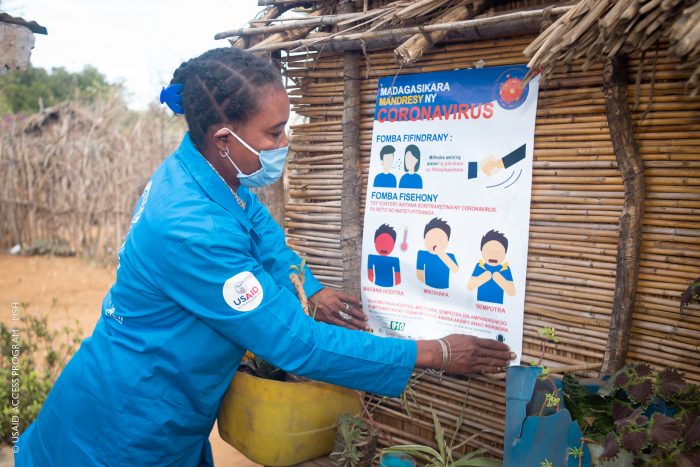
Is there something WEIRD about fact-checking?
Much of the research about combating misinformation with fact-checking comes from experiments that looked at single countries in North America, Europe, and Australia. By over-relying on Western, educated, industrialized, and rich countries — known, charmingly, to scholars as “WEIRD” populations — for data, were scholars making claims about fact-checking that would not hold up in other nations? Two researchers, Ethan Porter from George Washington University’s School of Media and Public Affairs at and Thomas J. Wood from Ohio State University’s political science department, wanted to find out.
In their study published on Tuesday, the researchers outlined how they conducted simultaneous fact-checking experiments in four countries (Argentina, South Africa, Nigeria, and the United Kingdom) that “differ starkly along educational, economic, and racial lines” to see if their power to reduce false beliefs translated across oceans and borders. Twenty-two different statements, including two false claims about saltwater killing Covid-19 and “global cooling,” were presented to distinct groups of participants in all four countries. One group was randomly assigned to receive misinformation, another group received misinformation followed by a fact-check, and a third group was the control. Each group was tasked with identifying whether a related statement was true or false, including again two weeks after the initial testing.
What they found was largely promising:
— The fact-checks worked. Participants who saw fact-checked statements following misinformation showed “significant gains in factual accuracy” across the different countries. On average, the fact-checks increased factual accuracy by .6 points on a 5-point scale.
— The results were durable, too. More than two weeks after the participants encountered the fact-checks, at least some of their truth-boosting effect was still detectable.
— Exposure to misinformation did not decrease factual accuracy by a significant amount — just .07 on the same 5-point scale. The authors did note, though, that their results likely reflect “the lower boundary of misinformation’s effects” because their presentation did not includes signals (like a source the participant knows) that would typically accompany misinformation in the wild.
— Although the study found fact-checking improved accuracy more than misinformation degraded it, the researchers noted that the misinformation effect for Covid-19 was the largest of all misinformation treatments they studied. “In contrast, and of special relevance at the present moment, misinformation regarding COVID-19 degraded accuracy about COVID in three of the four countries,” the report noted. (The United Kingdom was the exception.)
This last finding is just one reason that Africa’s top fact checkers are focused on fighting misinformation about Covid-19 in their countries. Fact-checkers including Ann Ngengere from Viral Facts, Rabiu Alhassan from GhanaFact, and Rose Lukalo-Owino and Enock Nyariki from PesaCheck spoke about the heightened challenge — and the lessons they’ve learned so far — at a Code For Africa event on Wednesday.The uncertainties around the virus may make us more likely to believe untruths on the topic, suggested the event’s moderator, PesaCheck copyeditor Cathy Imani.
“We’ve seen that governments, authorities, and influencers are giving conflicting information and wrong information — sometimes even sharing strange beliefs or outlandish claims,” Imani said. “As it is with things that are mysterious, things that we consider enigmatic, we tend to fill in the void using the information that we already have. Things like assumptions, beliefs, and biases come into play. And we know that if these things go unchecked, then they end up going viral.”
Misinformation can spread as fast as Covid itself, disrupting public health campaigns, economies, elections, and (of course) individual lives. At the beginning of the pandemic, much of the misinformation about Covid-19 concerned facts like how the virus is transmitted, its symptoms, where it originated, and how to best treat it. Nowadays, Ngengere from Viral Facts said, more of the misinformation is centered on vaccines. The best fact-checking tries to anticipate questions that audiences have, she said. It’s one reason why she recommends explainers.
“If you do not address the information gap when it arises, then you have the problem of coming to try to debunk [after] people have already started spreading the misinformation,” Ngengere said. “I think all of the fact-checkers on the panel will agree with me. It is very, very difficult to try and disseminate accurate information once the misinformation has already started spreading because it goes very viral very fast. It becomes difficult for you to amplify the accurate information and get the same visibility and engagement as the misinformation you are debunking.”The fact-checkers on the panel emphasized the importance of partnerships, pointing to collaborations with local community radio journalists who they’ve trained to spot misinformation and digital literacy programs for members of the public. They also lean on each other to compare what other fact-checkers are seeing in their regions, as a way to anticipate what false beliefs may be taking root in their own communities.
One threat that they’re keeping a close eye on is videos coming from Western countries — originally in English — that misinformation spreaders are translating into local languages or adding commentary over. Many of the artificial intelligence technology for identifying misinformation on social media and WhatsApp work with English and French, but less so with languages like Swahili, making misinformation in local languages harder to spot automatically.
Code For Africa says they’ll continue to have panels on the best ways to combat misinformation. Check their Twitter for updates.